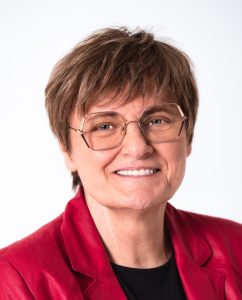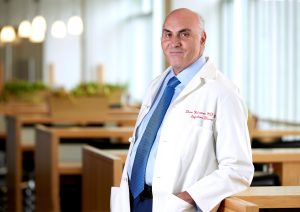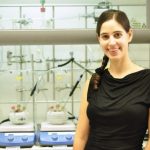The Technion is setting up a “Give Help / Get Help” center. This center serves the Technion community and their families. In the coming days, the center’s activity will expand to assist the residents of the North and the South, and the armed forces. You are invited to take part, both as volunteers, and as recipients of aid. https://technion.my.canva.site/
Category: Uncategorized
Technion update
Dear Members of the Technion Community,
In coordination with all research universities, we have decided to postpone the commencement of the winter semester. It will now begin the week of November 5, 2023. Further details will be provided in due course.
We are also extending all deadlines related to graduate academic requirements (such as thesis submissions, candidacy exams, etc.) to December 2023. Scholarships will proceed without interruption. Students granted “conditional acceptance” who are pending completion of their bachelor’s degree will be permitted to initiate their studies and receive scholarship benefits. We will soon release additional guidelines for graduate students about conducting research remotely during this emergency period.
Technion Update
Dear Members of the Technion Community,
Due to the current tension in the north, Technion and TRDF employees will work remotely tomorrow (12.10.23). Only emergency teams and essential workers will be allowed on the two campuses. Team leaders will provide instructions for their activities.
Entry to laboratories for essential activities will be permitted in accordance with Home Front Command instructions and activity alerts.
The Sports Center will remain closed. Further updates for the upcoming week will be provided over the weekend.
Technion Update
Dear Members of the Technion Community,
During these trying times, it is important to remember that the Technion is a big, strong and united community, taking care of all its members and their families.
Situation assessments are held daily, and the Technion continues to follow the Home Front Command’s instructions for the Haifa area. The Dean of Students Office remains available at all times to provide students with assistance, and the Human Resources department is at the disposal of faculty and staff (details below). Together we will get through these challenging days.
Please note the following important announcements:
- Submission of final projects and lab reports for the 2022-2023 academic year will be postponed until four weeks into the 2023-2024 winter semester. If necessary, the teaching staff will extend the submission deadline at their discretion, but no later than seven weeks into the winter semester. Teaching staff are requested to notify the students about the postponement of submissions through the usual channels.
- The Technion is setting up a “mutual responsibility” center. This center serves the Technion community and their families. In the coming days, the center’s activity will expand to assist the residents of the North and the South, and the armed forces. You are invited to take part, both as volunteers, and as recipients of aid. https://technion.my.canva.site/
- Donation fund: the Public Affairs and Resource Development division, together with the Technion Societies in Israel and around the world, has set up an emergency fund to support students who have been called up for service, and their families. The fund will also assist in improving the campus protection, renovating shelters and safe rooms, and in the purchase of essential equipment.
- The Dean of Students Office remains available to provide assistance. For any concerns, please reach out to the student counselors at 077-8874112 during working hours, or at the following emails:
counseling-director@technion.ac.il
- The Human Resources department has made available a mobile number for urgent and personal inquiries via WhatsApp, for any concerns and at all hours of the day: 053-5466258.
We ask again: please ensure you are prepared for emergencies and are updated for the relevant procedures. Make sure you know the location of shelters nearest to your office.
For a list of the safe rooms and shelters on campus, click here >> https://bit.ly/46HtZmi
For guidance on how to behave during a missile attack, see the video at >> https://bit.ly/3rJjDmR
- Activities at the Technion campuses in Haifa proceed as usual, with the necessary adjustments to the situation, and with consideration and sensitivity to workers’ needs. We remind you that following the Home Front Command instructions for the Haifa area, those present at the Technion campuses are required to stay in a place that would allow them to reach a safe area within a minute at most.
- We ask that you download the Technion app, to stay up to date.
Android users: https://bit.ly/3LRgpEB
Apple users: https://bit.ly/3ZNRZBL
- The Security Unit’s hotline operates around the clock at 04-8292222. More details can be found at https://bitahon.technion.ac.il.
We urge everyone to closely follow and adhere to updates and guidelines disseminated via email, WhatsApp, the Technion website, and our social media platforms.
Understanding the Onset of Sporadic Alzheimer’s Disease
New Discoveries in the Development of Alzheimer’s Disease in a Study led by Professor Michael Glickman and Dr. Inbal Maniv from the Faculty of Biology at the Technion were Published in Nature Communications.
Alzheimer’s disease was named after the German researcher Dr. Alois Alzheimer, who first described it in 1906. The disease is characterized by the degeneration and death of nerve cells, processes that lead to a progressive impairment of cognitive abilities. It occurs typically in adults over the age of 65, but a small percentage of all Alzheimer’s patients are hereditary cases that affect younger patients.
Today, Alzheimer’s disease is commonly divided into two types – familial and sporadic. Familial Alzheimer’s disease is a rare condition, caused by genetic mutations. By contrast, the underlying mechanism of the more prevalent Sporadic Alzheimer’s disease is unclear and was the focus of the study conducted by Dr. Maniv and Professor Glickman.
Toxic proteins accumulate in the brains of Alzheimer’s patients. The mechanism of accumulation in familial patients is clear because there is an obvious link between the known mutations and the proteins that accumulate. In sporadic Alzheimer’s disease, on the other hand, the trigger for protein accumulation is unknown.

As protein experts, Prof. Glickman’s research group proposed that the accumulation of toxic proteins in the brain is due to a disruption in the protein clearance mechanism, also known as the ubiquitin-proteasome system. To test their hypothesis, the group established a model system of human neurons, that allowed them to examine the involvement of the ubiquitin system in the development of the disease. In the published article, they describe their results: damage to the ubiquitin system leads to the accumulation of toxic proteins even in healthy tissue, mimicking the typical Alzheimer’s pathology.
To assess the importance of their findings, the researchers went on to engineer an RNA molecule that specifically silences one of the components of the ubiquitin system. Treatment with this molecule ameliorated the pathology in their experimental model. The team proposes that this RNA molecule could serve as a prototype for the development of effective treatments. The past few years have seen major advancements in the packaging and delivery of bio-active RNA molecules as therapies. With proper modifications and packaging, the interference RNA targeting the component that the team has identified could yield promising results in a clinical setting. This discovery highlights the importance of the ubiquitin system in clearing defective proteins to maintain the cells’ health. Disruption in this system could lead to the development of the disease.
The Technion researchers believe that beyond the findings presented in the article, the platform they developed may be used to screen drugs for the treatment and prevention of sporadic Alzheimer’s disease. They add that this platform will help reduce animal experiments in the development of new Alzheimer’s therapies.
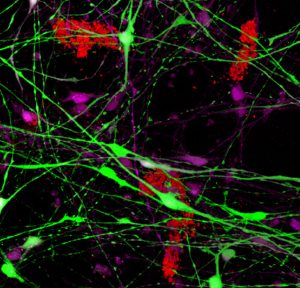
Mahasen Sarji, Anwar Bdraneh, Dr. Yaron Fuchs, and other researchers from the Technion conducted the study, in collaboration with researchers from Tel Aviv University, Maastricht University in the Netherlands, and the University of Glasgow in Scotland. The research was supported by the Israel Science Foundation, the philanthropic Schmidt Futures, and the BIRAX – Alzheimer Society partnership.
Click here for the paper in Nature Communications
Harvey Prize predicts Nobel Prize, again
The Technion’s Harvey Prize again predicted the Nobel Prize!
In August, the Technion – Israel Institute of Technology announced that the Harvey Prize, the most prestigious award given by the Technion, will be given to biochemist Prof. Katalin Karikó and immunologist Prof. Drew Weissman for their singular contribution to the development of corona vaccines.
This morning, the two were informed that they are the winners of the Nobel Prize for Medicine for 2023.
Weissman and Kariko will receive the Nobel Prize for Medicine “for their discoveries that led to the development of effective mRNA vaccines for Corona”.
Prof. Kariko became known for her persistence in working on mRNA in view of the refusal of the academic establishment in those days to recognize the medical potential of those molecules.
She and her colleague Prof. Weissman led pioneering work in the development of improved mRNA (nucleoside-modified mRNA), which leads to the suppression of the inflammatory response to mRNA molecules and paves the way for RNA-based treatments.
The two will receive the Harvey Prize at the Technion in June 2024 with their colleague Prof. Pieter Cullis for their research, which enabled, among other things, the rapid development of corona vaccines and their rapid delivery, thus saving millions of people around the world.
Their scientific discoveries caused a revolution and led to the development of new types of drugs and genetic therapies that greatly contributed to human well-being.
“The Technion is proud to recognize the enormous importance of the engineering of mRNA molecules for the development of vaccines. The technology that the three have developed is a revolution in the pharmaceutical world,” said Technion President Prof. Uri Sivan.
Join us in congratulating Professors Katalin Karikó and Drew Weissman on receiving the Nobel Prize for Physiology or Medicine.
And even more importantly, for saving millions of lives thanks to their life’s work!
Technion Update
Dear Members of the Technion Community,
The Technion, together with all of Israel, continues to monitor the developments and prepare for all scenarios, according to the changing situation. Our thoughts and prayers are with those who have lost loved ones, with the many wounded, and with the families of captives and the POWs. We pray for the safe return of the hundreds of students, faculty and staff members, who have been called up for reserve service.
The Technion administration held the daily situation assessment meeting this morning with all relevant departments and organizations on campus. We continue to prepare for multiple contingencies. Campus shelters and safe rooms are now accessible. The Technion emergency response teams are ready, and undergoing refresher training for dealing with emergencies.
Please note the following important announcements:
- Following the instructions of Home Front Command, there are no changes to alert levels in the Haifa area. Therefore, activities at the Technion campuses in Haifa proceed as usual, with necessary adjustments according to the situation, and with consideration and sensitivity to needs of the staff and students.
- Starting tomorrow, the opening hours of the Nesher (East) gate will be changed. The new hours are:
- Sunday – Thursday: 05:45-14:00
- Friday – Saturday: the gate will remain closed.
For Technion ID card holders, the pedestrian turnstile at the gate will operate as usual.
- The Human Resources department has made available a mobile number for urgent and personal inquiries via WhatsApp, for any concerns and at all hours of the day: 053-5466258.
- The Technion Students Association (ASAT), through dozens of student volunteers, collected and distributed yesterday boxes of food and more than 150 hot meals to soldiers at the various bases. This operation will continue in the coming days. We will keep you posted about the ways in which you can join this effort.
- We ask again: please ensure you are prepared for emergencies and are updated for the relevant procedures. Make sure you know the location of shelters nearest to your office.
For a list of the safe rooms and shelters on campus, click here >> https://bit.ly/46JhCGk
For guidance on how to respond during a rocket attack (video), click here >> https://bit.ly/46m5efp
- The Security Unit’s hotline operates around the clock at 04-8292222. More details can be found at https://bitahon.technion.ac.il.
We urge everyone to closely follow and adhere to updates and guidelines disseminated via email, WhatsApp, the Technion website, and our social media platforms.
Technion Update
Dear Members of the Technion Community,
Israel is going through hard and bitter times. Our thoughts and prayers are with those who have lost loved ones, with the families of captives awaiting news, with the wounded, and our defense forces working tirelessly to keep us safe. We pray for the safe return of the hundreds of students, faculty and staff members, who have been called up for reserve service.
The Technion administration held the daily situation assessment meeting this morning with all relevant departments and organizations on campus. We continue to monitor the evolving situation and prepare for multiple contingencies. Campus shelters and safe rooms are now accessible, and a situation room team is meeting on a daily basis.
Please note the following important announcements:
• Following the instructions of Home Front Command, there are no changes to alert levels in the Haifa area. Therefore, activities at the Technion campuses in Haifa proceed as usual, with the necessary adjustments to the situation, and with consideration and sensitivity to workers’ needs.
• The Association of University Presidents has postponed the opening of the academic year to the week starting 22.10.2023. We remind you that studies at the Technion are planned to begin on schedule, on 24.10.2023.
• All exams, second period (Moed B) exams of the spring semester and first period (Moed A) exams of the summer semester, are postponed. An updated exam timetable will be issued by the Office of Undergraduate Studies in the near future.
• Security at the entrances to the campus has been increased and every vehicle is required to pass a security check. Please cooperate with the security guards and be patient.
• In these difficult days, when we are all dealing with the reality imposed on us, we are here with you and for you. We invite you to join Lilach Branda’s lecture on “Positive Reinforcement” tomorrow at 11:30 by Zoom. The lecture deals with resilience and positivity in difficult times. The invitation will be sent to you by the Human Resources Department.
• We ask again: please ensure you are prepared for emergencies and are updated for the relevant procedures. Make sure you know the location of shelters nearest to your office.
For a list of the safe rooms and shelters on campus, click here >> https://bit.ly/46HtZmi
For guidance on how to respond during a rocket attack (video), click here >> https://bit.ly/46m5efp
• To stay up to date, please download the Technion app.
Android users: https://bit.ly/3LRgpEB
Apple users: https://bit.ly/3ZNRZBL
Please make sure you permit “push notifications” from the app.
• We recommend you also download the Home Front Command app: https://did.li/HYfZH
• The Security Unit’s hotline operates around the clock at 04-8292222. More details can be found at https://bitahon.technion.ac.il.
We urge everyone to closely follow and adhere to updates and guidelines disseminated via email, WhatsApp, the Technion website, and our social media platforms.
Special Update
Dear Members of the Technion Community,
Our thoughts and prayers are with the victims’ families, the residents of southern Israel, and our defense forces.
The Technion administration has held a situation assessment meeting this morning with all relevant bodies on campus. We are vigilantly monitoring the evolving situation on the different fronts and preparing for multiple contingencies. Campus shelters are now accessible, and a situation room team is meeting on a daily basis.
Please note the following important announcements:
- Activities at the Technion campuses in Haifa proceed as usual, with the necessary adjustments to the situation, and with consideration and sensitivity to workers’ needs.
- The exams scheduled for this week have been postponed.
- Please ensure you are prepared for emergencies and are updated for the relevant procedures. Make sure you know where the shelters nearest to your office are.
For a list of the safe rooms and shelters on campus, click here >> https://bit.ly/46HtZmi
For guidance on how to behave during a missile attack, see the video at >> https://bit.ly/3rJjDmR
- To stay up to date, please download the Technion app.
Android users: https://bit.ly/3LRgpEB
Apple users: https://bit.ly/3ZNRZBLPlease make sure you permit push-notifications from the app.
- We recommend you also download the Home Front Command app: https://did.li/HYfZH
- The Security Unit’s hotline operates around the clock at 04-8292222. More details can be found at https://bitahon.technion.ac.il.
- As we announced earlier, the Technion Employee Recognition Event that was scheduled for this Thursday has been postponed. We will keep you posted about a new date.
- The Dean of Students Office remains available to provide assistance. For any concerns, please reach out to the student counselors at 077-8874112 during working hours, or at the following emails:
counseling-director@technion.ac.il
- The Human Resources department stands ready to provide Technion personnel with any assistance required, including emotional support and social assistance through “Eshhar”. Please contact Meital Bar-On, head of welfare division, at meital.b@technion.ac.il, or Michal Bar Haim, head of personnel division at the Technion Research and Development Foundation (TRDF), at michalb@trdf.technion.ac.il
- Many students and faculty members have been called to reserve duty. Please stay safe and come back without harm! We’re here to offer all the support you need.
We urge everyone to closely follow and adhere to updates and guidelines disseminated via email, WhatsApp, the Technion website, and our social media platforms.
Technion Update
Technion Update Concerning the Recent Events in the South
Saturday, 7th October 2023, 18:00
Dear Members of the Technion Community,
Early this morning, Israel entered a state of conflict. Our thoughts and prayers are with the victims’ families, the inhabitants of southern Israel, and our defense forces.
The Technion administration is vigilantly monitoring the evolving situation and preparing for multiple contingencies. Campus shelters are now accessible, and a situation room has been established to oversee developments.
As of now, the Home Front Command has issued no specific directives for the Haifa region. We continue our operations as usual, exercising appropriate caution.
Please note the following crucial announcements:
• Based on the Home Front Command’s guidance, activities at the Technion campuses in Haifa will resume as usual tomorrow. However, the Sarona campus in Tel Aviv will remain closed.
• The second period (Moed B) exams of the spring semester and the first period (Moed A) exams of the summer semester, originally scheduled from Sunday, 8th October 2023, through Friday, 13th October 2023, will be postponed. An updated exam timetable will be released by the Office of Undergraduate Studies. Rescheduled dates will fall within the initial two weeks of the semester, set for afternoons and Fridays.
• A significant number of students have been mobilized for reserve duty. We stand ready to provide them with all necessary support.
• In light of a marked uptick in cyber-attack warnings, and in collaboration with the National Cyber Directorate and peer academic institutions, the security of the Technion’s systems has been enhanced. Users outside Israel may encounter intermittent disruptions.
• The Security Unit’s hotline operates around the clock at 04-8292222. More details can be found at https://bitahon.technion.ac.il.
• The Dean of Students Office remains available to assist. For any concerns, please reach out to:
Adih@technion.ac.il
counseling-director@technion.ac.il
We urge everyone to closely follow and adhere to updates and guidelines disseminated via email, WhatsApp, the Technion website, and our social media platforms.
Light for Health
Rinat Hadashi Gannon, a master’s student in the Technion – Israel Institute of Technology’s Faculty of Architecture and Town Planning under the supervision of Faculty Dean Professor Guedi Capeluto, has developed an approach designed to improve health outcomes in inpatient rooms through the use of daylight.
Light significantly affects our physiological and psychological health, wellbeing, and performance and plays a substantial role in regulating the circadian rhythm, modulating the cycle of sleep and wakefulness, and neurological and hormonal processes that affect our health.
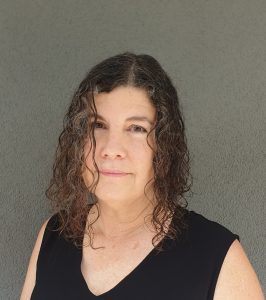
Life in modern Western society is marked by a lack of exposure to natural light. Around 90% of our time is spent indoors where we are exposed to artificial light, which disrupts our biological clock and is liable to take a toll on our health. Previous research has shown that the incorporation of daylight in inpatient wards contributes to lower consumption of medications, reduced length-of-stay, improved sleep quality, a reduction in depression and stress, and even a decrease in mortality.
The Technion researchers developed new tools and methods to evaluate daylight in inpatient rooms and to provide design guidelines for improved inpatient health. According to their findings, even architectural means that are relatively simple may improve daylight availability in inpatient wards, including full-opening windows, overhangs and adjustable blinds, and light shelves. The researchers emphasize that the evaluation of daylight availability in the hospitalization period must take into consideration seasonal changes in different orientations.

Hadashi Gannon and Prof. Capeluto believe that their model could contribute to the evaluation of daylighting performance in the built environment and can also be applied in other contexts such as work environments and educational institutions. They also think their model can guide and benefit design and positively impact the psychological and physical state of users, their alertness and concentration, and aspects such as performance, health, and wellbeing.
The location chosen for conducting the research is a side lit two-bed inpatient room that is common in Israeli hospitals. The semi-private patient room was chosen, since patients in the beds far from the window are exposed to insufficient daylight due to the distance from the window, the screens between the beds, and control of the curtains and blinds by the patient whose bed is near the window.
To ensure that the computer simulations reflected real-life conditions, seasonal measurements of daylight were made in inpatient rooms at Soroka Medical Center. These measurements were used to calibrate the computer model.
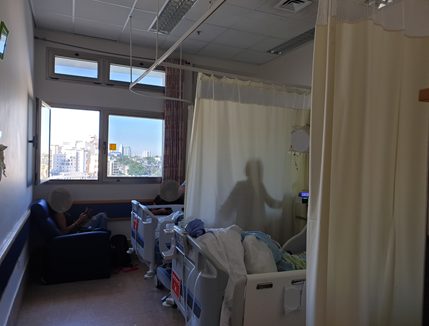
Schulich Chemistry Faculty Now Hold 7 Prestigious ERC Grants
Technion Schulich Chemistry Faculty’s Researchers Now Holds 7 Prestigious ERC Grants
The European Research Council announced last week that researchers at the Technion – Israeli Institute of Technology have been awarded a noteworthy five ERC Starting Grants, which are awarded to talented early-career scientists who completed their doctoral degrees only two to seven years ago, and have already produced excellent work, showing great promise.
With two of the five Starting Grants awarded to researchers at the Schulich Faculty of Chemistry, the faculty now holds a remarkable total of 7 active ERC Grants, including three Advanced Grants and two Consolidator Grants.
The ERC Advanced Grant is given to the best proposals by researchers who have a track-record of significant research achievements in the last 10 years.
The ERC Consolidator grant aims to help excellent scientists, who have 7 to 12 years’ experience after completing their PhDs, strengthen their research teams and pursue their most promising ideas.
The latter two types of grants, part of the EU’s Horizon Europe Program, are awarded to exceptional Principal Investigators who are demonstrated leaders in terms of originality and significance of their research contributions.
The Schulich Faculty of Chemistry Researchers and Their Grant-Winning Projects are:
Distinguished Professor Ilan Marek currently holds his second consecutive active Advanced Grants. The first focused on selective carbon-carbon bond activation through remote functionalization, creating complex scaffolds in a convergent and unified strategy whereas the current Advanced Grant focuses on the selective functionalization of unsaturated hydrocarbons, seeking a practical strategy for the synthesis of complex target molecules to strongly impact the fields of fine chemical synthesis, materials science and pharmaceutical industry.
Professor Ashraf Brik likewise holds an active ERC Advanced Grant. His and his group’s research specializes in developing synthetic methods for chemical synthesis of proteins with post-translational modifications in quantities that allow for them to be studied thoroughly. The grant focuses on the delivery and on-demand activation of chemically synthesized and uniquely modified proteins in living cells. They are developing a general approach for enabling considerably more detailed in-cell study of uniquely modified proteins by preparing proteins having the following features: 1) traceless cell delivery unit(s), 2) an activation unit for on-demand activation of protein function in the cell, and 3) a fluorescence probe for monitoring the state and the fate of the protein.

Assistant Professor Graham de Ruiter, who holds an ERC Consolidator Grant, is at the forefront of developing new environmentally benign chemical methodologies for organic synthesis. His research focusses on using cheap, non-toxic, and readily available earth-abundant metals as catalyst in chemical transformations that have hitherto been unknown via a classical organometallic approach with these metals. Reactions such as cross-coupling, alkene cross-metathesis, and C-H bond functionalization are now within research with these earth-abundant metals and are set the revolutionize the way chemistry will be performed in the future. The overall impact of these discoveries will influence many existing processes in the agricultural, fine-chemical, and pharmaceutical industry, where the use of earth-abundant metals in catalysis carries enormous potential.
Associate Professor Nadav Amdursky, yet another ERC Consolidator Grant holder, studies biological electron and proton transfer. In his new study, he will develop tools to explore the transfer of protons within proteins. To date, there are no direct means to measure specific proton-transfer pathways within proteins, and most research is based on following the end-product of the reaction. Among other applications, these tools will enable the group to answer questions relating to cellular respiration – the process by which cells convert nutrients into energy.
Associate Professor Lilac Amirav, an ERC starting Grant recipient, studies plasmon-enhanced photocatalytic nano-lithography. Her and her group’s research is concerned with unique design of innovative nano scale particles, which harness nano phenomena for improved activity, and methodologies for the construction of sophisticated heterostructures tailored for photocatalysis and energy conversion. The laboratory’s cutting-edge synthetic effort is combined with fundamental research focused on the dynamic and mechanism of photo-induced charge transfer processes, across the different components of 1the photocatalyst system and further into the solution.
Assistant Professor Yuval Shagam, a 2023 ERC Starting Grant recipient, focuses on understanding molecular chirality: a molecule or ion that cannot be superposed on its mirror image. Such molecules are often distinguished as either “right-handed” or “left-handed.” Molecular chirality plays a central role in many fields, ranging from reaction dynamics to drug development. The Starting Grant will allow Prof. Shagam and his team to realize the first trapped chiral molecular ion experiment in order to measure parity violation and detect the structural differences between enantiomers. The outcome can lead to an improved understanding of molecular physics as well as important applications for quantum-controlled chemistry experiments and quantum information technology.
Assistant Professor Charlotte Vogt, likewise a 2023 ERC Starting Grant recipient, works to solve problems of climate change and pollution by improving or inventing more sustainable processes. Metal nanoparticle-based catalysts are essential to shifting societal reliance away from fossil-fuel resources. Nearly all of these catalysts are currently found by slow, trial-and-error-based processes. The Starting Grant will allow Prof. Vogt and her team to advance the field through the development of a methodology to generate fundamental understanding of supported metal nanoparticle catalyst dynamics at work under relevant high-pressure conditions.

